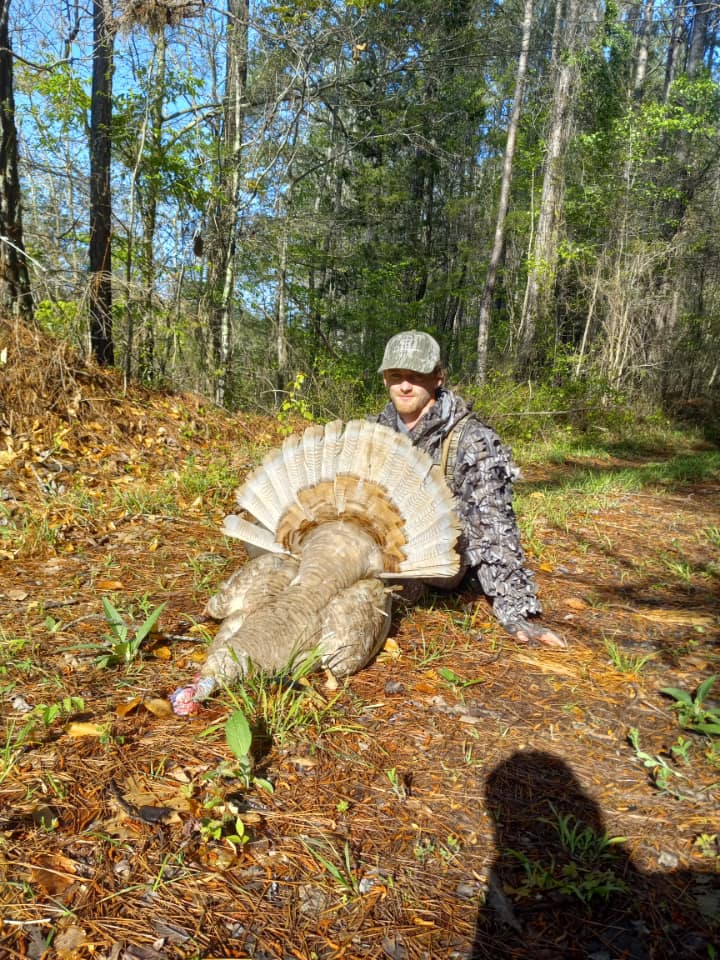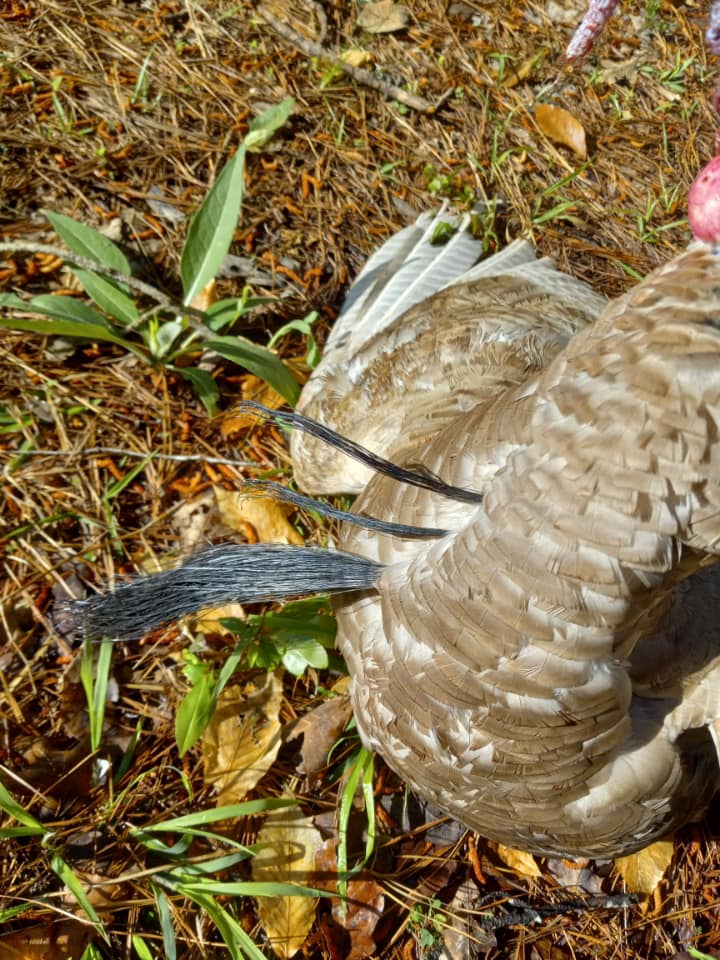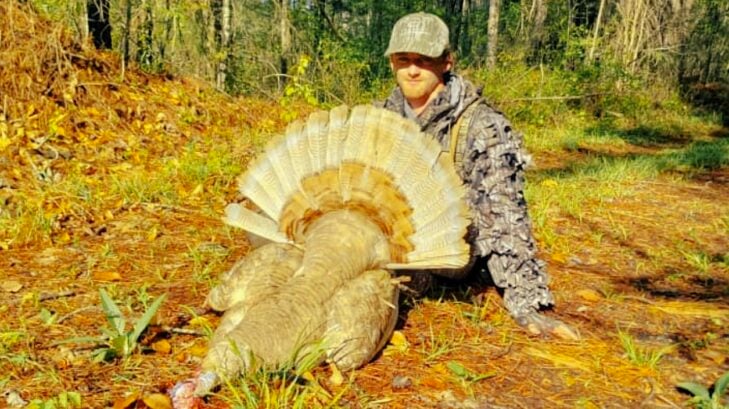On a chilly March morning, Tyler Anderson set out on a hunting trip to his deer camp outside Carthage, Mississippi. He had been looking forward to this day for weeks and hoped to bag a turkey he had heard making noises in the area.
“I’d been sitting on this ridge for about an hour when I finally decided to call,” Anderson said, according to Field & Stream.
As he sat on a ridge waiting for the turkey to appear or make a noise to respond back to his call, he heard it gobble in the distance.
It was the first time he had heard it in a week, and he knew this was his chance. He called out to the bird, and to his amazement, it gobbled back, closer this time.
“He gobbled so loud that it echoed through the bottom,” Anderson said.

Anderson waited patiently, kneeling beside a tree, as he listened to the turkey drumming. Suddenly, he spotted movement in the woods, and his heart raced. He then saw a light-colored turkey moving towards him, in full strut.
“I thought: Damn, he looks white,” Anderson said. “I figured it must have been the way the sunlight was hitting his feathers.”
As the turkey came closer, Anderson was stunned to see that its feathers had a reddish tint, something rare many in the area haven’t seen before.
He took aim and waited for the right moment. Finally, the turkey came out from behind a tree, and Anderson took his shot giving it a direct hit and dropping the bird.
Filled with excitement, Anderson ran out to retrieve the bird and he couldn’t believe his luck. The turkey had three beards, and its erythristic feathers made it a rare catch, known as a “red-phase” gobbler.
“No one that I know of that hunts around here has ever seen or killed anything like him,” he said, according to Field & Stream.

Some hunters tried to cast doubt on the turkey’s legitimacy, claiming it must have come from domestic stock. But Anderson knew better.
“If they knew where this turkey was, how far back in the woods he lived, they wouldn’t be saying that,” he said. “This was a wild bird in a wild place without any houses within 15 to 20 miles. A farm turkey wouldn’t last two days back in there.”
Anderson later discovered that his turkey was not the only one of its kind in the area. Another erythristic turkey had been caught by Justin Hutton of Madison, Mississippi back in May 2021.
Even so, Anderson’s turkey is still rare and certainly a once-in-a-lifetime catch that he will treasure forever.


